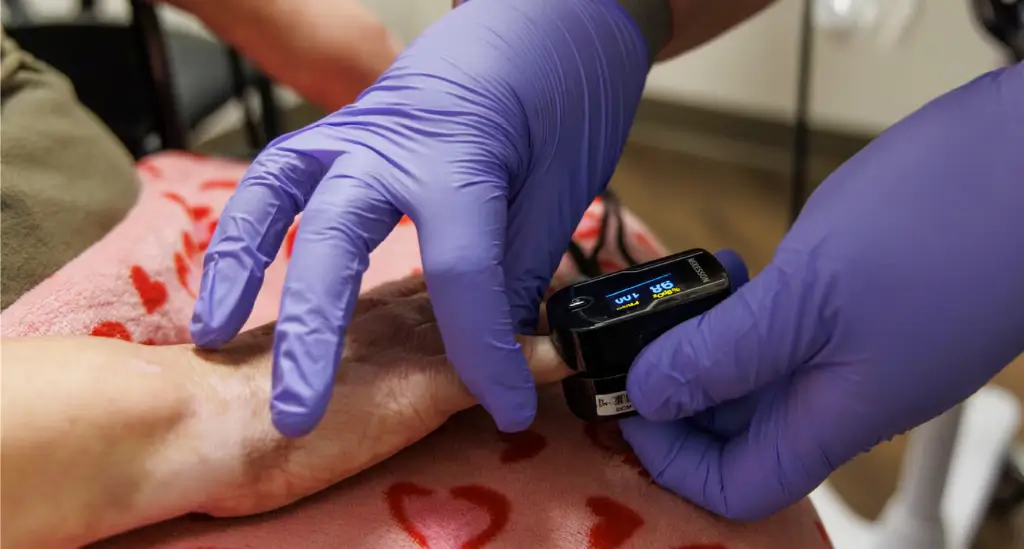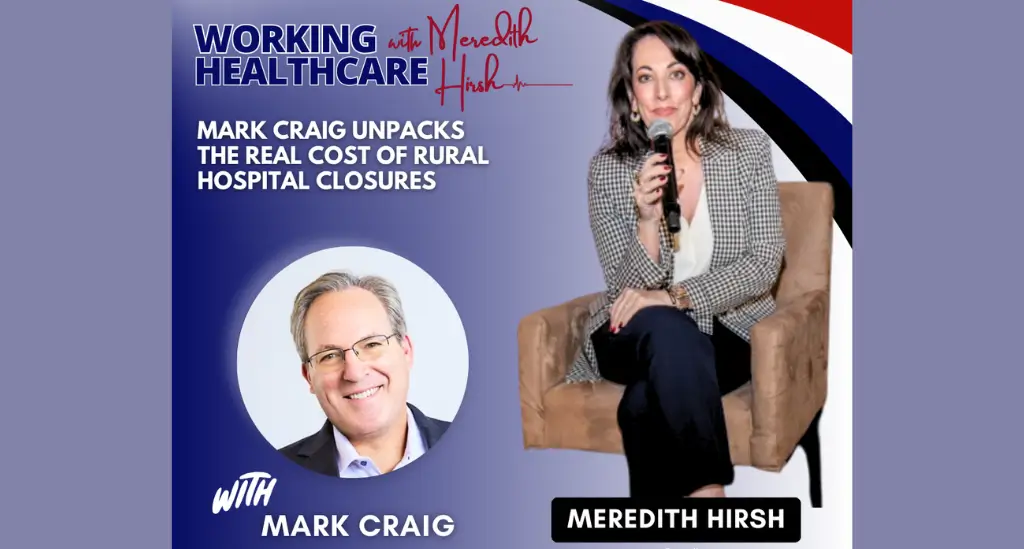Quick answer:
A clinical denial – usually stamped “not medically necessary” or “wrong level of care” – is overturned in five moves:
- Pull the entire chart. Gather progress notes, orders, labs, imaging, admit and discharge summaries – everything.
- Match facts to guidelines. Line every detail up against InterQual®, MCG®, or the CMS Two‑Midnight rule.
- Draft a clinician‑signed rebuttal. Present → cite guideline → outline risk if care was delayed.
- Hit peer‑to‑peer or Level 1 review fast. Stay inside the plan’s filing window.
- Escalate if needed. Go to external review when the internal path fails.
Every step listed above and expanded upon below has been field-tested by our in-house clinician, who has an 82% success rate in overturning clinical denials within 30 days.
Why Payers Deny Care They Already Pre‑Approved
In 2024, initial hospital claim rejections hit 11.8% – a decade high. Medical‑necessity and “request for information” denials led the surge, up 5% and 5.4% respectively, as payers leveraged AI review tools to protect medical‑loss ratios.
Facing tighter reimbursement caps and shareholder pressure, insurers now deploy predictive algorithms to flag any short‑stay or lightly documented case, banking on the odds that over‑stretched revenue cycle teams will abandon smaller‑dollar fights. That friction drains up to 5% of net patient revenue and drags caregivers into paperwork instead of patient care.
But the good news is, most of that money is recoverable when you pair airtight documentation with a clinician‑led appeal.
The 5‑Step Appeal Playbook that Works for Every Payer
Here’s what the 5-step process looks like on the ground:
- Collect the complete clinical record. Too many appeals fail because a single vitals trend or ED note is missing. Before you draft a word, export the entire chart: EMR feeds, lab PDFs, imaging reads, phone consult notes, admit and discharge summaries – everything.
- Map care to the payer’s own rulebook. Commercial plans lean on InterQual® or MCG®; Medicare Advantage must now honor CMS’s Two‑Midnight rule. Print the exact paragraph your patient meets, highlight it, and quote it verbatim in the appeal.
- Draft a clinician‑signed rebuttal. Keep it under 150 words. Open with the presentation, cite the guideline, close with the clinical risk if care were delayed, and sign with credentials (RN, PA‑C, MD).
- File fast and push peer‑to‑peer. Commercial payers give you 30 days; Medicare Advantage, 60. A live peer‑to‑peer call overturns roughly one‑third of denials on the spot.
- Escalate when stonewalled. If the plan’s internal path fails, file an Independent (External) Review – an IRO physician must rule within 45 days (72 hours if urgent). For Medicare & MA, jump to Level 3: A federal Administrative Law Judge, where providers win around 70% of cases once heard.
Evidence Package Checklist: What Every Appeal Needs
The core documents below apply to every hospital clinical denial. Be sure to include all of them for your best chance at a win.
| Universal Item | Why it Matters |
| Physician order + H&P | Establishes physician intent & initial acuity |
| Progress notes & flowsheets | Show clinical trajectory and response to treatment |
| Payer-policy / guideline excerpt (InterQual®, MCG®, LCD/NCD, specialty society) | Mirrors payer yardstick |
| Journal abstract or society guideline | Fills gaps when proprietary criteria are silent |
| Admit/discharge summary | Captures initial severity in, clinical stability (or ongoing risk) at exit |
| Peer‑to‑peer availability & contact | Short‑circuits back‑and‑forth |
Denial‑Specific Add‑Ons (Attach as Applicable)
Different types of denials require additional documentation for an airtight case. Start with the universal documents listed above, add what you need as indicated below, and proceed through the 5-step playbook.
| Denial Type | Extra Evidence to Include in Addition to the Core Packet |
| LOC downgrade | • Admit order timestamp + “expect ≥ 2 midnights.” • CMS Two-Midnight paragraph (or matching InterQual®/MCG® criterion). • CC/MCC list (e.g., CHF, CKD IV). |
| DRG downgrade / validation | • Clinical indicators proving principal DX & secondary DX’s. |
| Extended LOS validation | • InterQual®/MCG continued-stay milestone table with met criteria highlighted. • Case-management notes on placement or SNF delays. |
| 30-day readmission penalty | • ED/admit notes for the readmit showing unrelated DX (e.g., trauma). • Physician attestation that readmit cause is unrelated to index stay. |
Compliance & Keyword Cheat-Sheet
Drop these phrases in your appeals packet as appropriate, to signal legal leverage and pin the appeal to the payer’s own published criteria. Using even one or two in the right place can signal to payers (and AI-based review tools) that you know the rules, the timelines, and the penalties for non-compliance. A well-placed statute in the cover letter or the right guideline in the rebuttal is often enough.
| Category | High-Leverage Keywords / Phrases to Drop In |
| Regulatory clocks & rights | • ACA § 2719(b) internal-review timeline • ACA § 2719(c) external review • State Prompt-Pay Statute • No Surprises Act IDR • Reasonable Layperson Standard (EMTALA) |
| Contract / policy anchors | • Certificate-of-Coverage “Medical Necessity” clause • Clean-Claim provision • Timely-Filing Limit <180 d> • URAC v7 UM Standard • NCQA UM 2025 Element |
| Payer denial codes | • CARC 199 / RARC N822 (medical necessity) • CARC M127 (missing docs) • Condition Code 44 • Revenue Code 0762 (observation) |
| Clinical benchmark terms | • InterQual® Acute Adult v2025 • MCG 29th ed. • CMS LCD # • ICD-10 Official Guidelines § I.A.19 |
| Escalation paths | • Independent Review Organization (IRO) • State Fair Hearing • ALJ Level 3 |
Appeal Deadlines at a Glance
| Payer | Appeal Window* |
| Commercial (PPO) | 30 days |
| Medicare Advantage | 60 days |
| External Review (IRO) | 45 days (72 h expedited) |
| Medicare (FFS) – Redetermination | 120 days |
| Medicaid (state plans) | 30 – 60 days |
*File sooner whenever possible; payers can deny late appeals outright.
Using Your Existing Data to Prevent Denials
While the appeal process above helps you recover denied claims, the real win is preventing denials before they happen. Most hospitals are sitting on data that can predict and prevent these denials; they just aren’t using them that way yet.
With a few simple, accessible implementations, staff can track payer behavior, spot trends before they snowball, and auto-draft appeal language that meets medical-necessity standards.
Hospitals that focus on quick, practical wins are already seeing real results:
- A Missouri CAH found 80% of BCBS denials tied to just three CARC codes
- An Arkansas hospital prevented $350,000 in timely-filing losses in a single quarter
- A Kentucky hospital cut claim status FTE in half and reduced average A/R days by 12
If you’d like a copy of our AI in Revenue Cycle Management white paper outlining these workflows, you can request it here.
When Denial Volume Outpaces Capacity
Even the most effective clinical appeal process has limits when denial volume outpaces staff capacity. Many hospitals reach a point where appeals aren’t failing because the arguments are weak, but because there simply isn’t time to work every denial before deadlines expire. When that happens, some organizations add a denial control layer—explicit rules for prioritization, authority, and timing—so appeal outcomes aren’t determined by backlog pressure alone. We outline that framework separately in our Denial Control model for rural hospitals operating under sustained denial volume.
FAQ and Straight Answers
- How long do I have to appeal a clinical denial? Commercial 30 days; MA 60 days; Medicare FFS 120 days; Medicaid 30–60 days. Always check the denial letter.
- Can I appeal twice? Yes. CMS offers up to five levels; most commercial plans give at least two plus external review.
- What documents prove necessity? Order, progress notes, vitals, guideline citation, clinician letter.
- Do MA plans follow Two‑Midnight? Required since 2024, but audits show only ≈ 20% compliance.
- How often are appeals successful? Nationally 50–60%; our clinician process wins 82%.
- When should I outsource? If overturn rate is under 70% or backlog is more than 14 days.










